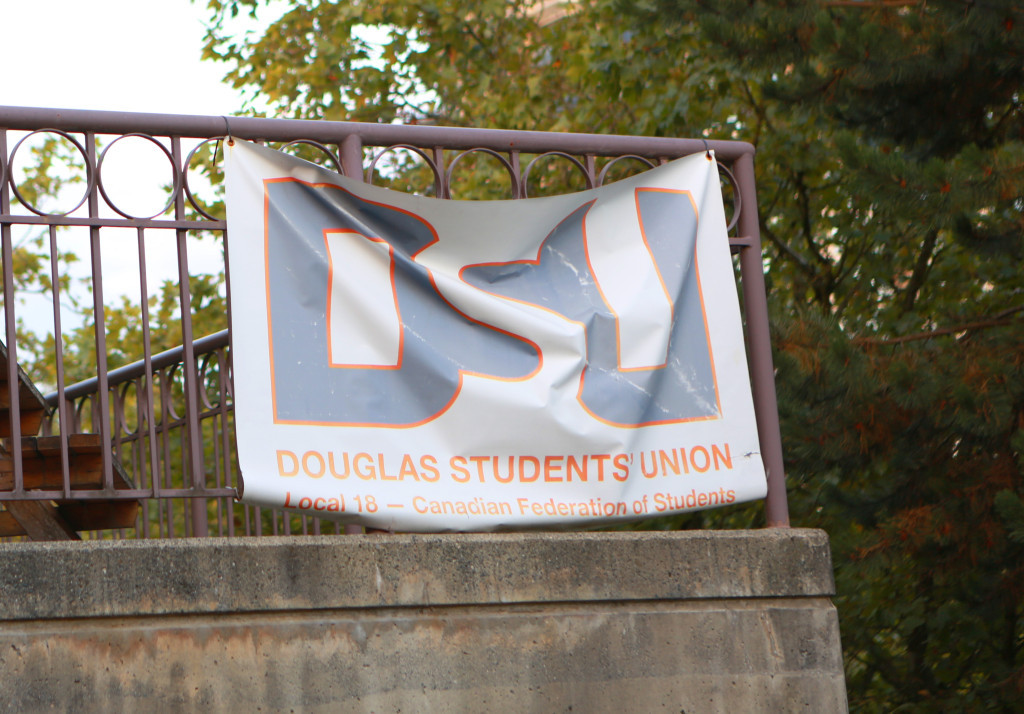Weighing the benefits of CFS membership and national unity
By Cazzy Lewchuk, Contributor
Unions—an organized group meant to further the interests of employees or students—have existed for years. They usually serve to improve relations between groups and their superiors (i.e., corporations and educational institutes), stand up for members’ rights, and provide services for all who need them. The Douglas Students’ Union (DSU) is composed of every student within Douglas College. It provides students with health plans, meeting spaces, and student resources, among other things. Some of these benefits are made available with the support and participation of the Canadian Federation of Students (CFS), a 32-year-old national union with over 500,000 members.
The CFS is heavily involved with several causes to better students’ lives and their academic community. They launch campaigns to reduce tuition rates and fees, encourage higher voter turnout among students, provide an International Student Identification Card (ISIC) to all members, and increase funding for scholarships and research.
This September, it was announced that 16 schools are in the process of ending their membership with the CFS. Some members of our own DSU are also considering a vote to leave in the future. The schools leaving plan to start new organizations under more “direct membership control.” I believe this movement is bad for both the futures of individual schools and for the CFS.
For the schools, it will cut the local unions and students off from being nationally involved with their fellow Canadian students. The new unions formed will only serve the interests of the individual schools and not care about other schools, whether locally or across the country.
The DSU is a founding members of the CFS, working alongside more than 80 other schools in the country on issues that affect us all. If we leave the CFS, we will no longer be part of the community that binds all post-secondary institutions in Canada. Students who take classes at other institutions will be especially conflicted, such as those in co-op programs like the SFU Degree Partnership. What happens if someone attends one school in the CFS and another that is not? Are they still a member of the CFS? Or the non-CFS school? It could cause issues for their privileges in either union and create a serious conflict of interest.
The lobbying done by unions works on both local and national levels. If the DSU is not part of the CFS, we lose out on many of the national benefits, such as regulations for lower tuition. A basic essential service, the ISIC, which is currently free at Douglas and many other schools, would cost more under non-CFS membership.
Leaving the CFS will leave students unable to truly enjoy the benefits or make decisions that affect all Canadian students: tuition, scholarships, and funding.
Being a part of the CFS is the easiest and most reliable way to know what our rights and responsibilities as college students in Canada are. I believe the CFS works as a positive factor for the DSU and allows us to be more connected and aware of the student population in our country.

